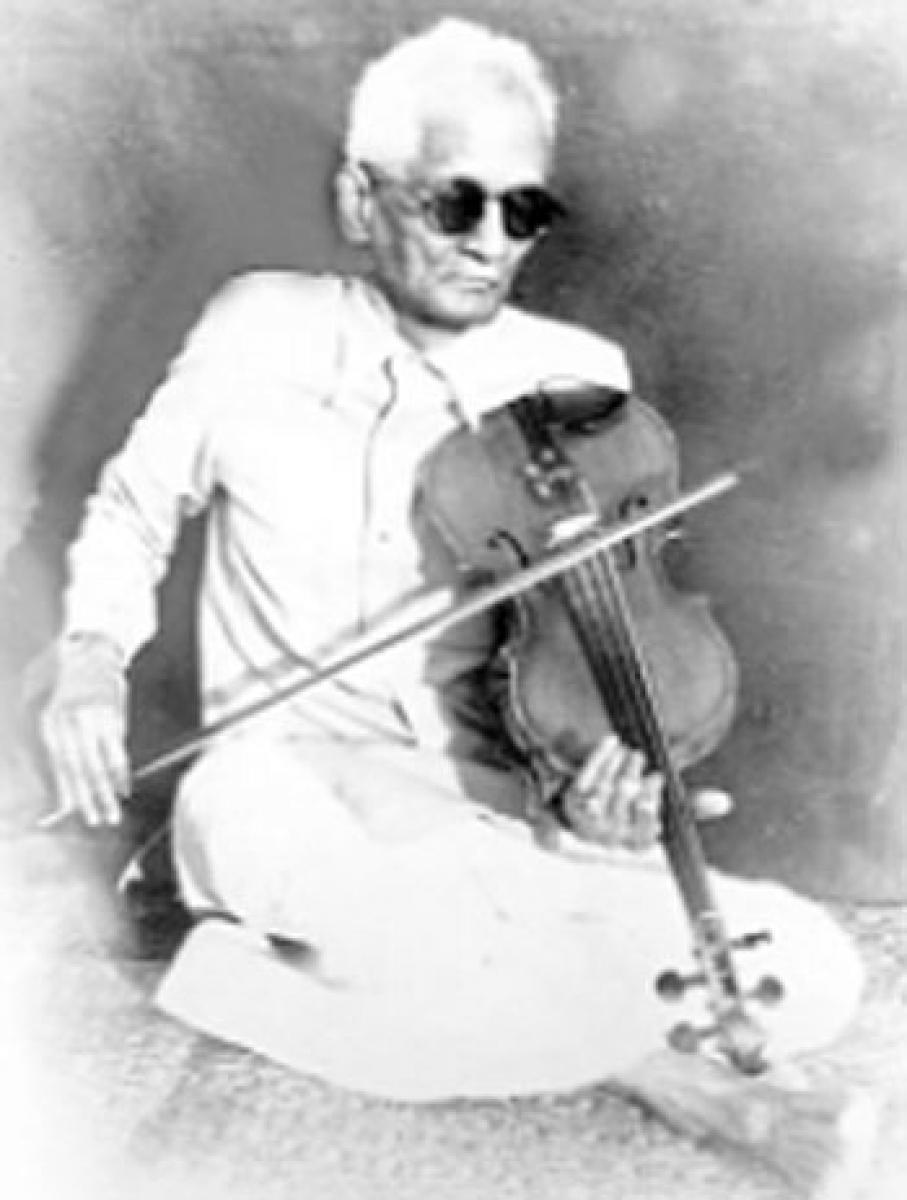The Dwaram Legend

My ancestors belonged to Kasimkota. They perhaps had some cultivable land and served the Zamindars there before moving to Bengaluru where they served in the British regime as Army Under Officers. That was the time the caterpillar had begun to take the wings of a butterfly,” Prasada Rao shares.
 My ancestors belonged to Kasimkota. They perhaps had some cultivable land and served the Zamindars there before moving to Bengaluru where they served in the British regime as Army Under Officers. That was the time the caterpillar had begun to take the wings of a butterfly,” Prasada Rao shares.
My ancestors belonged to Kasimkota. They perhaps had some cultivable land and served the Zamindars there before moving to Bengaluru where they served in the British regime as Army Under Officers. That was the time the caterpillar had begun to take the wings of a butterfly,” Prasada Rao shares.
“Military bands of two types were functional then - for entertainment and of course Control. A ‘brass band’ comprised of clarinets, trumpets, large drums and the other ‘string band’ was made of musical instruments like violin, viola, cello and double-bass. Our forefathers fell for the tonal semblances that violin has with human voice. Yet, for consummation, it still required a waiting of two generations.
They were till then restricted to musical assistance for bhajans in Ram temples.” Gradually, Indian independence movement that had already assumed a tone of discord led them to rethink, and they left the British army. Dwaram Venkata Krishnaiah Naidu and his younger brother Suryanarayana Naidu, also a musician had basic education that was good enough to secure a job and Krishnaiah Naidu joined the Railways as a Telegraphist. Krishnaiah Naidu by then was sure that what he had learnt was not the only music.
He therefore prodded a British station master to teach him western music on violin and the notations. For a better grounding in Indian music, he approached Nandigana Venkanna Pantulu, who was a court musician in the Bobbili sansthan. Venkata Swami Naidu who was later to become an icon of violin had learnt music from Krishnaiah Naidu, his brother.
It was during the time of Venkata Swami Naidu, ‘Dwaram’ attained a legendary status in music. With a certificate in hand he had arrived in Vizianagaram. In the Korukonda palace, a stage was arranged for him for an evening concert in the presence of the King Vijaya Rama Gajapati. Among others who attended the show were Adibhatla Narayana Das, the royal secretary Srirangam Venkata Swamy and his illustrious son Srirangam Narayana Babu. The member of Dwaram family set to become an illustrious musician of his times, had turned the bow and the string as tools for service of the goddess of learning.














